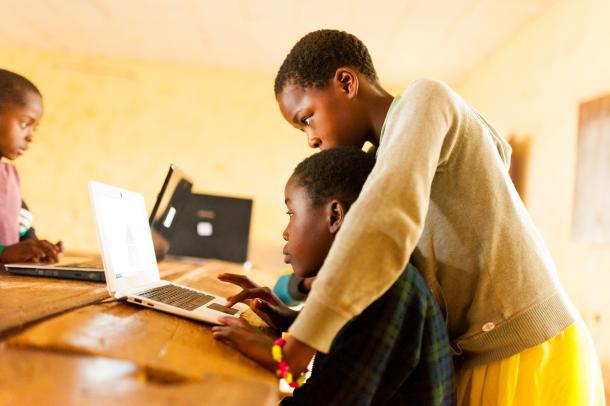Making digital open schools resilient

The concept of technology-enabled open schools refers to an open delivery modality that mixes non-digital means with digital technologies. The aim is to enable the provision of school programmes that make curricular courses, human tutorials, coaching, and well-being accessible across multiple physical and distance learning spaces, including homes and alternative safe venues such as community learning centres, libraries, or temporary crisis shelters. The fundamental purpose is to ensure that alternative access to education can be ‘switched on’ or made available immediately, so that the right to learn is not disrupted during school closures precipitated by crises or emergencies.
It is clear, following the COVID-19 pandemic that all countries need open and crisis-resilient learning systems that can ensure the continuity and quality of learning when education is disrupted.
Crisis-resilient systems are impossible without the judicious use of technology. Therefore, it is important to advocate for a culture of openness in connecting and extending learning spaces, managing digital learning resources across platforms, and facilitating learning beyond the school walls.
UNESCO supports the development of digital open schooling models as part of its strategy for the digital transformation of education and its mission to ensure the right to education for everyone. It emphasises equitable and inclusive access to digital learning to enhance the resilience of learning systems.
Transforming the provision of school education requires structural changes and calls for policy that takes into account the links among educational sectors and sub-sectors and different areas of policy, and the need to re-design regulations and programmatic actions. Prioritizing open learning systems and outcomes also leads to requirements for Open Educational Resources (OER) and open practices.
Policy-makers need to take a society-wide or intersectoral view of the provision, mobilization, and integration of ICT resources for education which can be challenging in countries where connecting households and schools is the responsibility of more than one ministry, such as the Ministry of Technology and the Ministry of Finance. Existing initiatives and efforts to create digital open schooling models can help the development of adaptable, flexible and resilient open schools and can encourage other low-income countries aiming at transitioning to a digital education system.
Two UNESCO-coordinated projects provide financial and technical support in multiple countries to plan and test technology-enabled schooling models through a holistic approach including building or enhancing national public digital learning content and platforms, training teachers on pedagogical use of technology, as well as supporting the design and pilot testing of pedagogical practices. The projects also support the development of national policies and masterplans to scale up technology-enabled schooling models.

